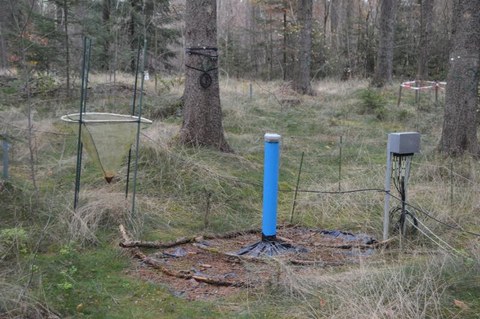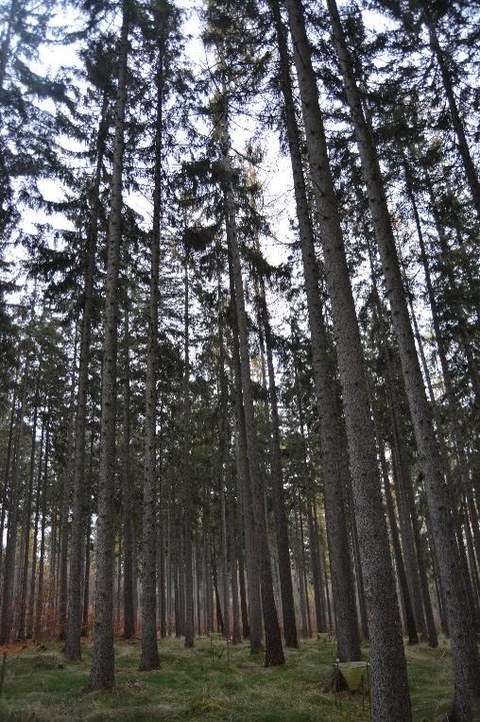Jan 10, 2023
The forest in times of climate change
A joint project between TU Dresden, the University of Göttingen and the Bavarian State Institute for Forestry and Forestry develops a monitoring system to estimate groundwater recharge and evaporation in forests
Climate change poses numerous challenges for water and forestry management. One of them is the availability of water. Forests consume water, store it and make it available again in high quality. How much water evaporates in our forests and what proportion of the precipitation leads to the formation of new groundwater is only estimated on the basis of models at the forest observation points of the forest environmental monitoring. A research team from TU Dresden, the University of Göttingen, and the Bavarian State Institute for Forestry and Forestry now want to develop effective and efficient routines for monitoring the evaporation rates of forest trees. The Federal Ministries of Food and Agriculture and of the Environment, Nature Conservation, Nuclear Safety, and Consumer Protection are supporting the project for three years with a total of 925,000 Euro from the Forest Climate Fund.
Recently the group of Prof. Andreas Hartmann (TU Dresden) has developed novel methods to estimate groundwater renewal using soil moisture measurement networks. In the joint project, the researchers now want to couple these methods with a new method for recording the water balance of trees in order to develop a practical concept that integrates the new measuring network into the existing measuring network of the intensive forest monitoring sites in Germany. A large number of measurements at a wide variety of forest locations are to be used to develop the new measuring network and to identify and, if possible, reduce previous uncertainties in the model-based assessment of the forest water balance.
"In addition to better recording of the evaporation and groundwater renewal rates, we hope that we will better understand the competitive situation between trees with different root systems," says Prof. Martin Maier, Chair of Soil Physics at the University of Göttingen. "With the project, we want to contribute to a decisive improvement in the long-term data basis for environmental policy decisions, which is urgently needed due to the recurring drought situations," adds Prof. Andreas Hartman from the TU Dresden, who, like Dr. Stephan Raspe from the Bavarian State Institute for Forestry and Forestry is responsible for another part of the project in the association. The results should primarily help politics and businesses to develop strategies for drought-resistant silviculture.
Contact:
Prof. Andreas Hartmann
Institute of Groundwater Management
Faculty of Environmental Sciences
Tel.: 0351 463-42551
Internet: https://tu-dresden.de/bu/umwelt/hydro/igw


